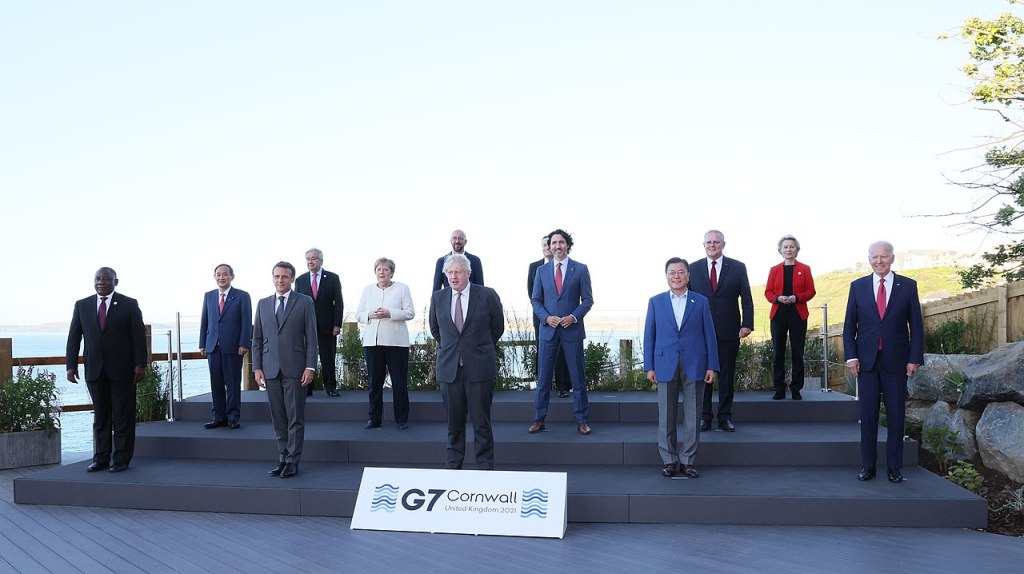
By Anders Lorenzen
G7 leaders had, before this year’s meeting hosted by the UK on Carbis Bay in Cornwall, the most southwestern county in the UK, promised that climate change would be one of the key discussion points.
The much-loved naturalist and environmentalist, David Attenborough, was even invited to give a speech on the importance of climate and biodiversity which he delivered via a pre-recorded video message, “We know in detail what is happening to our planet, and we know many of the things we need to do during this decade,” he said.
But despite all this, it appears that very little new ambition was unveiled, but a list of old pledges was rehashed in the final communique.
Old pledges dressed up as new ambition
For instance, the leaders of the G7 countries pledged to deliver finally on a long overdue promise to deliver $100 billion each year until 2025 to poorer countries to adapt to the impact of climate change. But only two of the countries were willing to pledge more cash. The UK which this year slashed its international aid budget was not one of them.
In what was US president Joe Biden’s first overseas trip, he described his infrastructure package as one of his key proposals to tackle the climate crisis. And in what seems more of a policy to tackle China’s dominance rather than the climate crisis, the G7 unveiled plans for a grand infrastructure plan which they want to see rival China’s impressive Belt and Road initiative.
Taking on China
The White House said that the plan known as the Build Back Better World (B3W) initiative, will provide a transparent infrastructure partnership to help narrow the $40 trillion needed by developing nations by 2035.
The G7 said the B3W initiative will mobilise private-sector capital in areas such as climate, health and health security, digital technology, and gender equity and equality. However, the initiative lacked substance. It was not immediately clear how exactly the plan would work or how much capital it would ultimately be allocated
Another rehashed pledge was to end government support for coal power by the end of this year. A G7 statement read: “We stress that international investments in unabated coal must stop now, and we commit now to an end to new direct government support for unabated international thermal coal power generation by the end of 2021.”
The communique went on to say “We will focus on accelerating progress on electrification and batteries, hydrogen, carbon capture usage and storage, zero-emission aviation and shipping and, for those countries that opt to use it, nuclear power.”
And in another pledge which did not seem to have any clear commitment, the nations pledged to work together to tackle carbon leakage.
One new initiative unveiled by the UK was the creation of the Blue Water Fund. The £500 million fund, financed by the UK government, aims to support developing countries to protect the marine environment and reduce poverty and will run for at least five years.
A plan to make a plan
The UK hosts put on a lavish seaside barbeque for the guests and a fanfare air show spraying out the colours of the G7. Critics were quick to point out, these high-carbon actions are not appropriate if you wish to demonstrate that you’re serious about tackling climate change.
Combined with the fact that the world leaders travelled to the remote Cornwall location in their government jets, the emissions associated with putting on the summit will probably far outweigh any emissions to be saved, if any, by what was agreed at the summit.
Or, as Laurence Tubiana, one of the key architects of the Paris Agreement put it: “In the face of a perfect storm of planetary crises – the world’s richest democracies have responded with a plan to make a plan”.
Categories: analysis, climate change, International Politics, UK
1 reply »